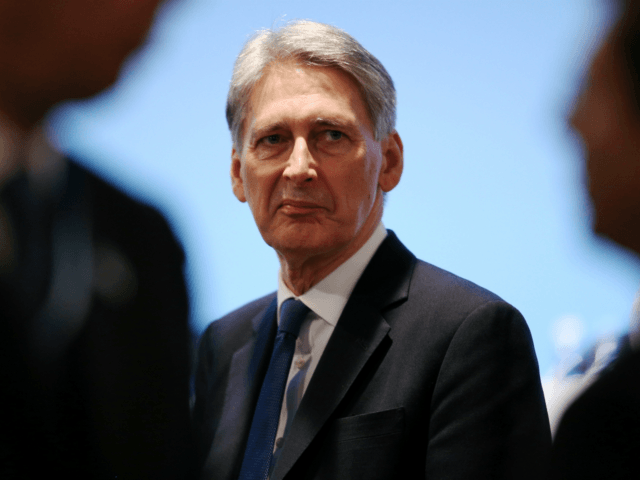Remainer Chancellor Phillip Hammond is pushing for “labour mobility” and “preferential” treatment for European Union (EU) migrants after Brexit, hoping to appease Germany’s Angela Merkel and win a trade deal.
He “disagreed with the Home Secretary [Sajid Javid] on labour mobility and ending Free Movement” at the Cabinet’s crunch Brexit meeting at Chequers, according to leaked minutes seen by the Telegraph.
Mr Javid had argued that “Free Movement had to end” and insisted there could be “no back door” but ‘Remainer Phil’ hit back, demanding Britain “keep options open” for “preferential mobility arrangements.”
“Such an agreement would be very important for the Chancellor of Germany,” he added. “If the UK sought her help to deliver this deal, it would need to be prepared to negotiate on this point.”
Prime Minister Theresa May has already caved in to the EU by allowing Free Movement to continue for two years after Brexit, and last month source claimed she was ready to accept “Free Movement by another name” in the long term after Britain leaves the bloc.
The two-year ‘transition period’ concession means around 1 million more EU migrants will come to the UK, according to estimates.
Along with following all EU rules on goods, Mrs May’s Chequers white paper proposes a “labour mobility framework” allowing EU migrants to “travel freely” to the UK without a visa after Brexit.
It does not, however, specify who could come and for how long, saying only that “reciprocal” arrangements would be sought which are “consistent with ending Free Movement”.
Jacob Rees-Mogg, a leading Brexiteer MP, blasted: “The Home Secretary’s position is admirably clear. Regrettably, the Chancellor said he specifically disagreed over Free Movement.
“This once again shows the Treasury is the beating heart of Remain and rejects the result of the referendum. There is clearly a risk that mobility becomes Free Movement by another name.”
Lord Green of Deddington, chairman of Migration Watch UK, added: “The Chancellor’s proposals amount to putting control of our borders up for negotiation.
“What is more, we will be negotiating in the context of trade arrangements with the EU where our hand is already weak.”

COMMENTS
Please let us know if you're having issues with commenting.